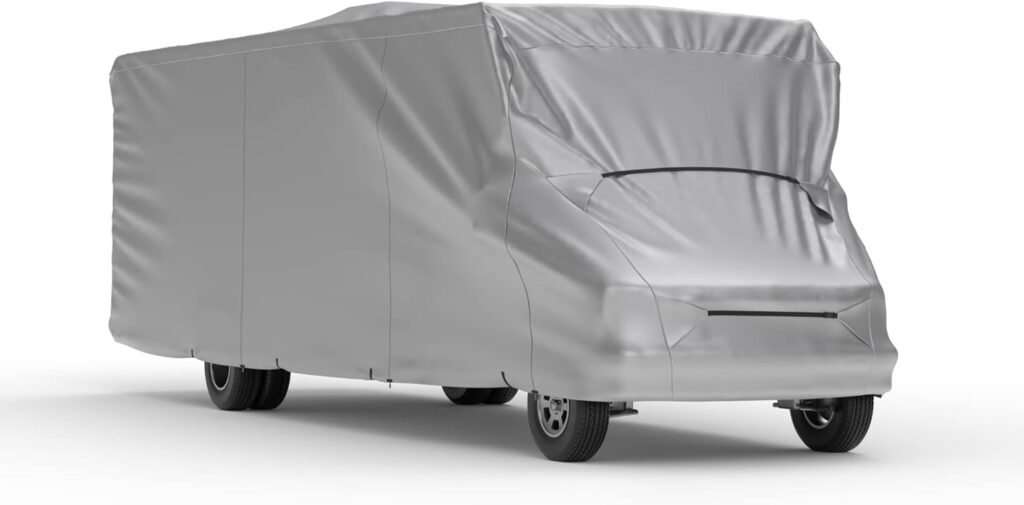Protecting Your RV: A Review of Storage Solutions

For many, owning an RV is the ultimate symbol of freedom and adventure. However, when it’s not in use, protecting your investment from the elements and other threats becomes a top priority. Several RV storage solutions are available, each offering unique benefits and drawbacks. This review will explore some of the most popular options, helping you choose the best fit for your needs.
1. Outdoor RV Covers
Outdoor RV covers are the most common and affordable solution. They offer protection from sun, rain, snow, and dust, preventing damage to the paint, fiberglass, and seals. However, covers can be susceptible to tearing and flapping in high winds, potentially damaging the RV itself. Additionally, removing and putting on a cover can be cumbersome and time-consuming.
Pros:
- Affordable
- Easy to install and remove
- Protects from various elements
- Variety of sizes and materials available
Cons:
- Susceptible to tearing in wind
- Offers minimal protection from extreme weather
- Can trap moisture and promote mildew
- May be difficult to remove and store
2. RV Carports
RV carports offer a more permanent and protective storage solution. They provide shade and protection from rain and snow but may not offer complete protection from wind and hail. Carports can be freestanding or attached to a home or garage. They are generally more expensive than covers but offer greater durability and convenience.
Pros:
- More durable than covers
- Provides shade and protection from rain and snow
- Easier access to your RV
- Freestanding options offer flexibility
Cons:
- More expensive than covers
- Limited protection from wind and hail
- May require permits or HOA approval
- Freestanding options can be susceptible to wind damage
3. Enclosed RV Storage
Enclosed RV storage facilities offer the highest level of protection for your RV. They provide complete protection from all elements, including wind, hail, and theft. Additionally, enclosed storage facilities often offer climate control, preventing the damaging effects of extreme temperatures and humidity. However, enclosed storage is the most expensive option and may require reservations, especially during peak season.
Pros:
- Highest level of protection
- Protects from all elements, including wind, hail, and theft
- Climate-controlled options prevent damage from extreme temperatures
- Secure facility reduces risk of theft
Cons:
- Most expensive option
- May require reservations
- Limited access to your RV
- May not be readily available in all areas
4. RV Storage Pods
RV storage pods are an increasingly popular option, offering a secure and convenient storage solution. They are essentially self-storage units specifically designed for RVs. These pods are often climate-controlled and offer security features, like keypad entry and video surveillance. However, storage pods can be more expensive than traditional storage options and may have size limitations.
Pros:
- Secure and convenient
- Climate-controlled options prevent damage from extreme temperatures
- Self-contained units offer easy access to your RV
- Variety of sizes available
Cons:
- More expensive than traditional storage options
- May have size limitations
- May not be readily available in all areas
5. RV Storage at Home
Storing your RV at home can be the most economical option, especially if you have adequate space. However, it’s crucial to ensure proper storage conditions, including shade, protection from the elements, and adequate clearance for maneuvering. Additionally, local regulations may restrict RV storage at home, so checking with your municipality is essential.
Pros:
- Most economical option
- Easy access to your RV
- No need for reservations or additional fees
Cons:
- Requires adequate space
- May not offer protection from all elements
- Some municipalities may have restrictions on RV storage at home
Choosing the Right Storage Solution
Ultimately, the best RV storage solution depends on your individual needs and budget. Consider the size of your RV, your budget, the level of protection you require, and your access to space. Researching and comparing different options before making a decision is crucial.
Additional Tips for Protecting Your RV in Storage
- Wash and wax your RV before storing it.
- Remove any perishable food items and valuables.
- Disconnect and store batteries.
- Cover tires with UV-resistant covers.
- Prop open vents to prevent moisture buildup.
- Check on your RV regularly.
By implementing these tips and choosing the right storage solution, you can ensure your RV remains protected and ready for your next adventure.